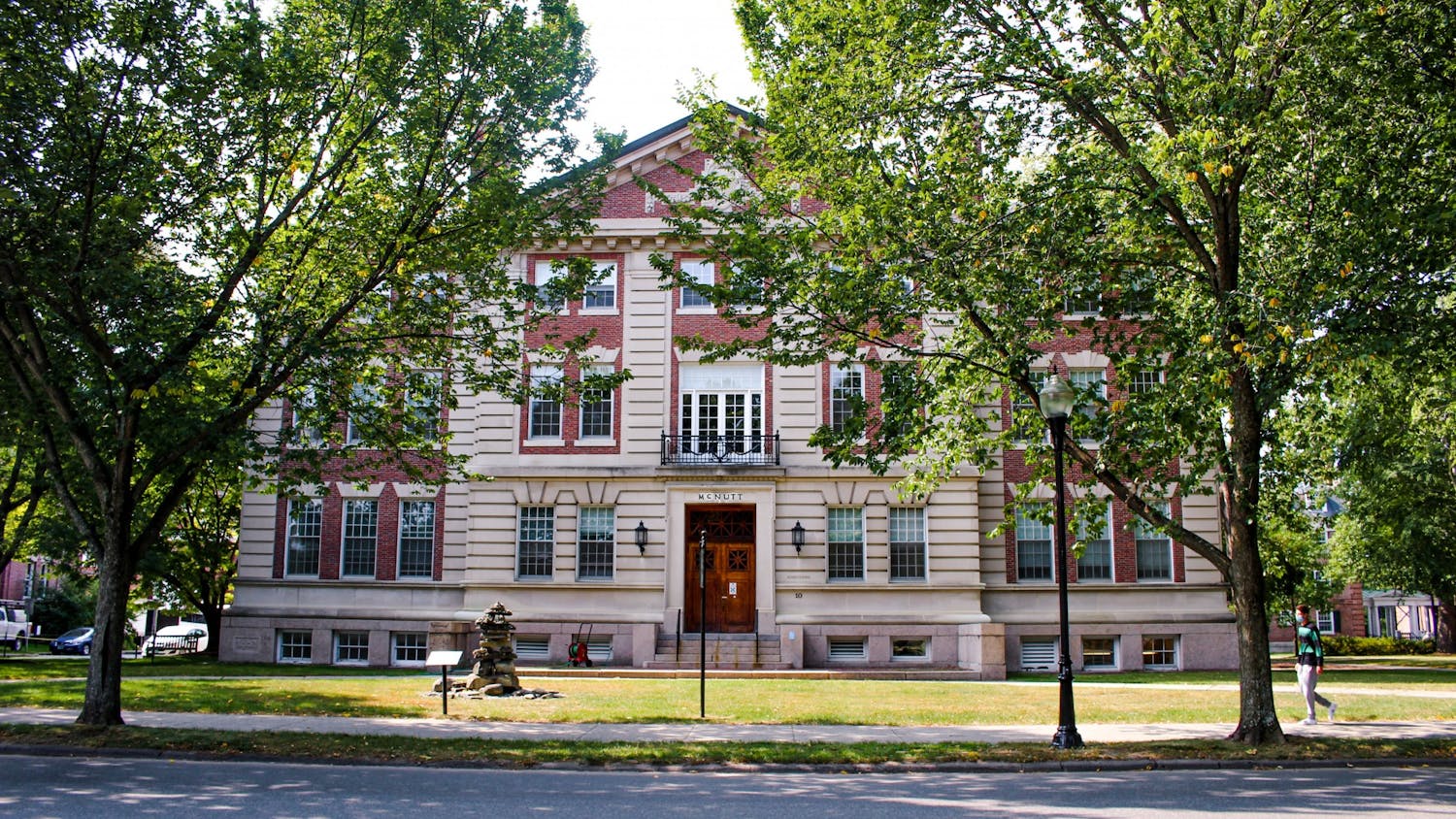Business Week magazine ranked The Amos Tuck School of Business tenth for the second consecutive time in its biannual survey of business schools.
The University of Pennsylvania's Wharton School finished first for the third consecutive survey.
The Tuck School finished first in separate categories in the 1998 rankings for most available faculty out of the classroom, most loyal alumni and best integration of technology into the learning environment.
It tied for second for highest percentage of graduates earning over $100,000 per year.
Business Week uses student and corporate assessments of the different business schools to compile the rankings -- the only criteria used to judge the schools in the overall competition.
Tuck ranked 13th in the corporate poll and seventh in the graduate poll.
Business Week Management Editor Jennifer Reingold told The Dartmouth that Tuck's specific areas of strength are accounted for indirectly in the overall ranking within the student and corporation polling.
Dean of the Tuck School Paul Danos said he thinks Tuck is unfairly punished in this limited survey because of its comparative smallness.
"I'm glad we're in the top 10, but I'm disappointed we're not much higher, because we really deserve it," Danos said. "The problem is the overall ranking depends a lot on a corporate survey that goes out to hundreds of corporations that don't recruit and don't know Tuck."
Danos said he thinks the survey weighs the corporate responses too heavily. "To show you how weird this particular survey is -- we're number 10 and Stanford is number nine, and everyone knows Tuck and Stanford should be at the very top. You know there's something wrong with it."
He said Tuck faces the same problem he sees Dartmouth College face-- lower name recognition than its academically equal counterparts.
"There are some names that are universal, but we are not as well known by companies we don't deal with," Danos said. "We really should be one, two or three -- something like that all the time. As long as they use a broad name-based recognition factor, it's going to be tough."
Reingold disagreed with the assessment that rankings are skewed towards large, big-name business schools. "We have a system for smaller schools that equalize them with larger schools ... I think [the methodology] is entirely legitimate and Tuck is entirely where it should be."
She said particular schools are not penalized if corporate recruiters have never heard of them -- only recruiters familiar with the institutions are counted in those schools' surveys.
Both Danos and Reingold agreed the Business Week rankings are taken very seriously by prospective business school students.
"Where it has an effect by far the most is in the international applications," Danos said, because many foreign companies will only pay for a business school education if the school is highly ranked.
Danos said the only time Tuck is hurt by the rankings is when it falls from the top 10, such as in 1994, when "applications went down."
Reingold stressed the rankings should be used only as a starting point for deciding where to attend business school. "Rankings are great ... but it should not be the only tool. Choosing a business school is an individual choice."
Danos said the Business Week survey is the most watched ranking for business schools, but U.S. News & World Report has yet to release its annual graduate school rankings, which are published each winter. Tuck ranked eighth in that survey last year.
Northwestern, Chicago, Michigan, Harvard, Columbia, Duke, Cornell and Stanford universities also ranked in the Top 10 of the 1998 Business Week survey.



